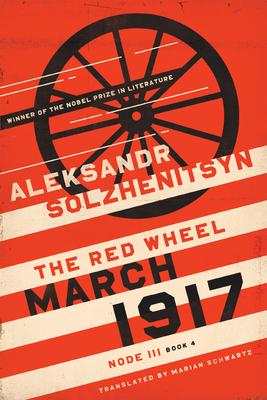In March 1917, Book 4 the willing and unwilling participants of the Russian Revolution try to make sense of their next steps amidst unraveling chaos.
One of the masterpieces of world literature, The Red Wheel is Nobel prize-winner Aleksandr Solzhenitsyn's multivolume epic work about the Russian Revolution told in the form of a historical novel. March 1917--the third node--chronicles the mayhem, day by day, of the Russian Revolution. Book 4 presents, for the first time in English, the conclusion of this four-volume revolutionary saga.
The action of Book 4 is set during March 23-31, 1917. Book 4 portrays a cast of thousands in motion and agitation as every stratum of Russian society--the army on the front lines, the countryside, the Volga merchants, the Don Cossacks, the Orthodox Church--is racked by the confusing new reality. Soldiers start to fraternize across trenches with the enemy. The Grand Duke Nikolai Nikolaevich, the emperor's uncle, arrives at military headquarters to assume the supreme command but is promptly dismissed by the new Provisional Government. Even this government holds no power, for at every step it is cowed and hemmed in by a self-proclaimed and unaccountable Executive Committee acting in the name of the Soviets--councils of workers and soldiers. Yet the Soviets themselves are divided--on whether to call for an end to the war or for its continuation, on whether to topple the Provisional Government or to let it try to govern. Meanwhile, in Switzerland, Lenin quietly dictates his own terms to the German General Staff, setting the stage for his return to Russia.
